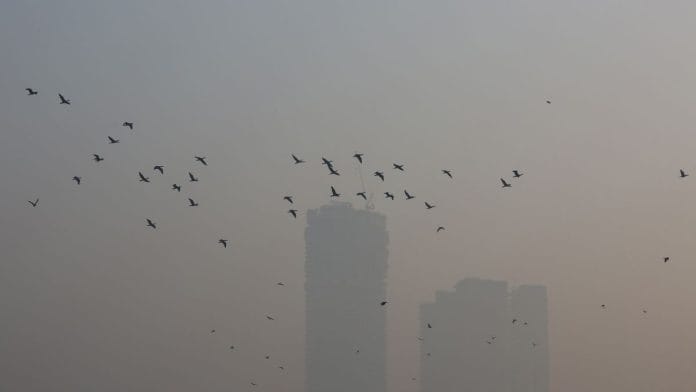New Delhi: BS Vohra has what he calls a gang. It’s not an organised crime syndicate, but a small army of citizen crusaders. Now, they have taken on their biggest battle yet— saving the capital from arguably its greatest civic disaster, the annual pollution crisis. And they’re flexing their civic muscle through resident welfare associations.
They can get a pothole fixed, ensure that streetlights are shining brightly at night, and organise a blood donation drive. But Vohra and other RWA members are waging a more grandiose battle, far beyond the confines of neighbourhood disputes. In Gurugram, RWAs are creating ‘artificial rain’. In Noida, they are setting up green generators. They’re filing RTI claims, shaking bureaucratic inertia, forming carpooling groups and sending angry missives to Delhi CM Atishi Marlena and the pollution control boards.
“I’m not interested in interacting with councillors or MLAs. We want to resolve issues,” said Vohra.
They no longer simply identify as RWA managers, but environmental crusaders. “The pollution’s been worsening for over a decade. Right from day one, we’ve been shouting this. We’ve become enemies of people in power,” he said.
But it’s proving to be a mammoth task for him and Delhi’s growing club of impassioned RWA members. The authorities’ refusal to interact with them has come as an insurmountable hurdle. Let alone the pollution itself.
There’s a list of questions Vohra sends to the authorities. Why does the ban on firecrackers have no impact? Why is there no check on encroachments that cause severe traffic jams leading to air pollution? These are questions now fundamental to Delhi’s identity. And there is another: Why don’t you respond to the queries raised by the RWAs?
“Elon Musk will respond to my tweets before the CAQM [Commission for Air Quality Management],” Vohra said frustratedly.
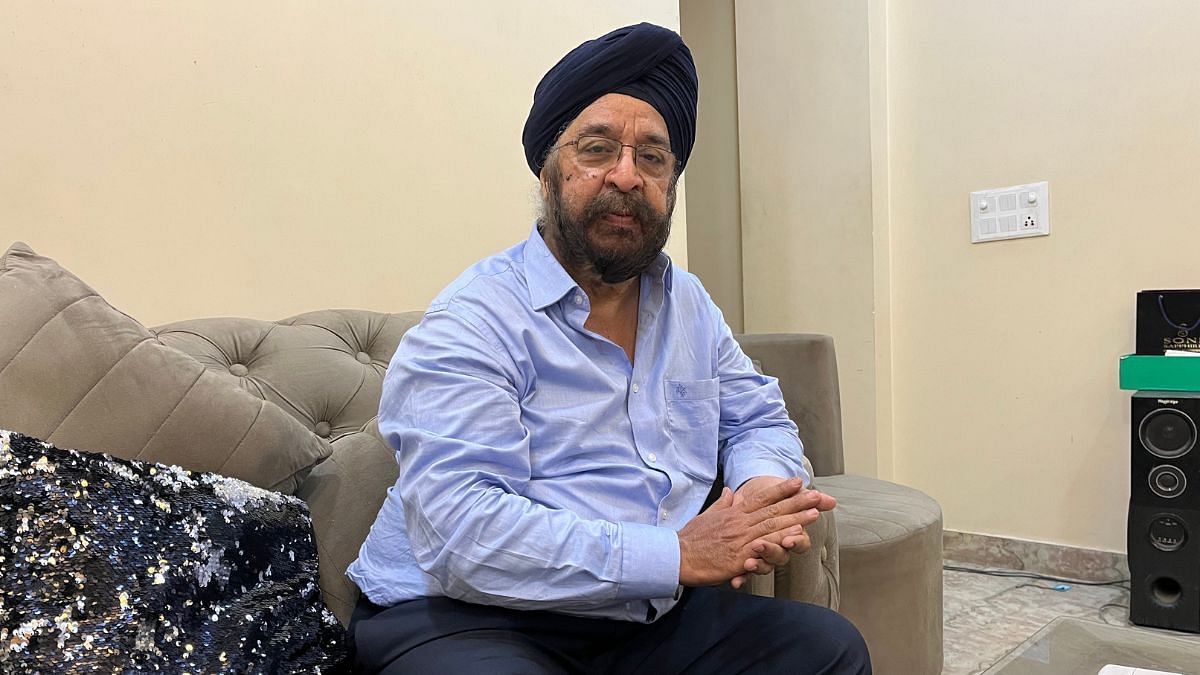
From rain to green generators
Achal Yadav, the RWA head of DLF Primus, an upscale condominium in Gurugram, took matters into his own hands. Along with other members, he created an artificial rain mechanism using the building’s fire line pipes, through which 30-50 litres of building borewell water came cascading down.
An RWA meeting turned into a brainstorming session. As residents complained about the rising AQI levels, Yadav arrived at a solution. The water, which otherwise would have been used to clean the pipes could be redirected to create artificial rain.
The exercise was put into effect for the first time last week, and the RWA plans on implementing it twice a week, depending on Gurugram’s AQI levels. Since DLF Primus’ success, other condominiums like Sector 90’s DLF New Town Heights and The Ultima in Sector 81 have also reached out to Yadav in the hopes of replicating the initiative.
“Air quality is a priority for residents, and the response has been good. The government [central agencies] are doing what they have to do. But we as individuals need to step up,” said Yadav.
The RWA is also active in encouraging the use of carpools, and alerting the authorities on cases of illegal garbage burning. But it’s often a futile exercise. Members regularly send photographs of garbage burning near the condominium to the Nagar Nigam authority but by the time their team reaches the site, it’s too late—the garbage is already burnt, and the air is rancid with its smell.
The municipal corporations say they have a specific mandate of solving community and civic disputes. The ultimate solution to saving Delhi from its poisonous air isn’t their domain.
“We have a limited role when it comes to pollution. Our agency is primarily into cleaning,” said Sandeep Kapoor, CEO of the East Delhi Municipal Corporation. He listed all the measures the civic body is taking to combat dust pollution: deploying 20 water sprinkling machines across public roads, including in pollution hotspot Anand Vihar every day, mechanised sweeping of roads, and issuing directives to collect construction and demolition (C&D) waste. Kapoor has also deployed 40 teams to crack down on garbage burning.
In Noida, the Noida Federation of Apartment Associations (NOFAA) President Rajiva Singh has been working to hasten the implementation of CAQM guidelines, by helping buildings to install green generator sets, which can reduce carbon emissions by 80 per cent.
They’ve put pressure on buildings to make the retrofitting of green generators mandatory, and have also been promoting the installation of EV charging stations on their Whatsapp groups.
“We still need to do more awareness campaigns but we try to push people as much as possible. Habits change slowly,” said Singh.
Residents have mostly been on board with these environment-first measures, but there’s a singular blind spot—firecrackers. They make a “small but statistically significant” contribution to the city’s crippling pollution.
“We tried to tell people to avoid firecrackers. But we can’t go beyond a point. It becomes an emotional issue,” Singh said.
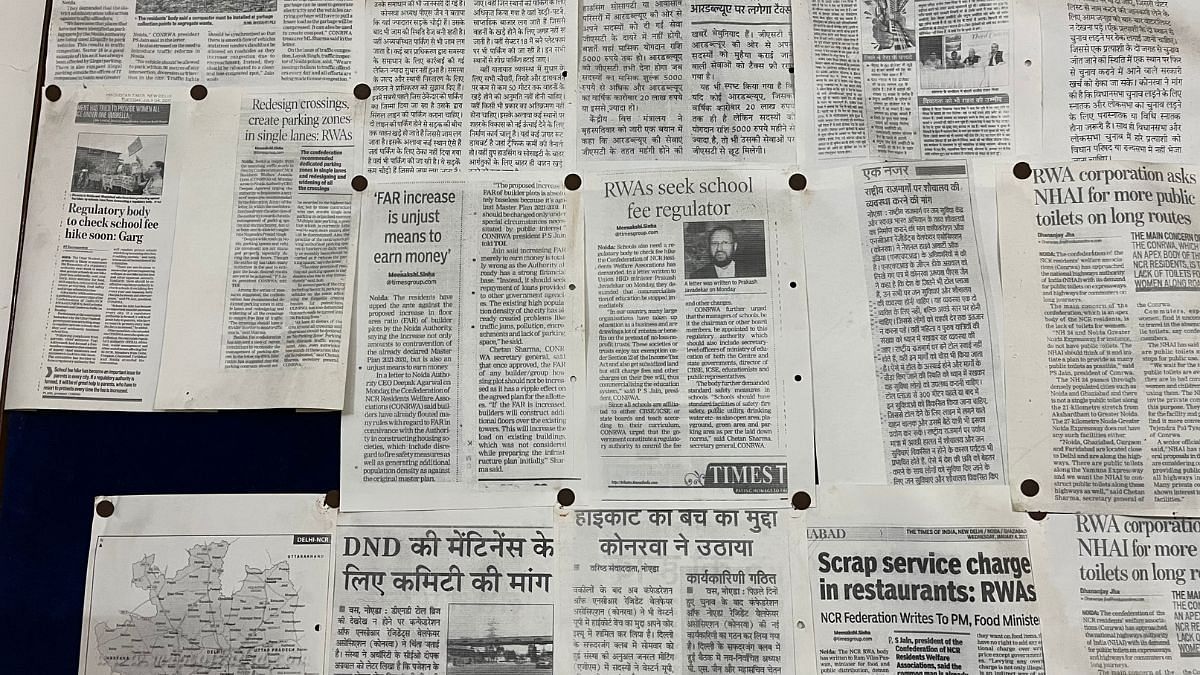
As Diwali arrived, RWA groups heated up.
“There’s no conversation with regard to the pollution. No awareness drives, no mask drives, no changes on the road,” Saurabh Gandhi, RWA member.
“If you have guts, give similar messages on Bakr-Id,” read a message on a South Delhi group, referring to residents who opposed the bursting of firecrackers. “We are debating strongly on irrelevant things based on knowledge attained from Whatsapp University,” read a response. The groups became microcosms of real-life polarisation, and the contribution of firecrackers to air pollution took a backseat.
According to Saurabh Gandhi, who’s at the helm of a group of RWAs in North Delhi, this year, even among schools, students weren’t instructed to not burst firecrackers. He said he is frustrated by the lack of response from the authorities. As winter set in and Delhi’s AQI crossed the 300 threshold, he sent a message on a WhatsApp group:
“Will any awareness meetings and campaigns be held this year by the SDM (Sub-divisional magistrate) office in conjunction with the RWAs?”
There was no response. Instead, what followed was a flurry of good morning messages and motivational quotes. According to Gandhi, this year, the SDM hasn’t held meetings with any RWA conglomerates, other than a single one in Shahadara.
In previous years, both bodies have worked together—like distributing electric heaters to security guards, thus disincentivising them to start fires to stay warm as the weather turns chilly. This year, the SDM has been incommunicado, Gandhi alleged.
“There’s no conversation with regard to the pollution. No awareness drives, no mask drives, no changes on the road,” he said. “The government takes out advisories [such as GRAP] but there’s no work that’s happening on the ground.”
The East Delhi RWA has launched a campaign asking the government to grant them permission to conduct a tree-plantation drive on the banks of the Yamuna.
“We, the federation of RWAs, are truly shocked at the rising levels of pollution as well as the heat in our city,” stated their parting message to Delhi environment minister Gopal Rai.
The RWAs want the authorities to address vacant land parcels and install more smog towers. But so far, appeals have fallen on deaf ears.
It’s this frustration and the compelling need for change that drove RWA members to take a step back from their day jobs to become professional activists.
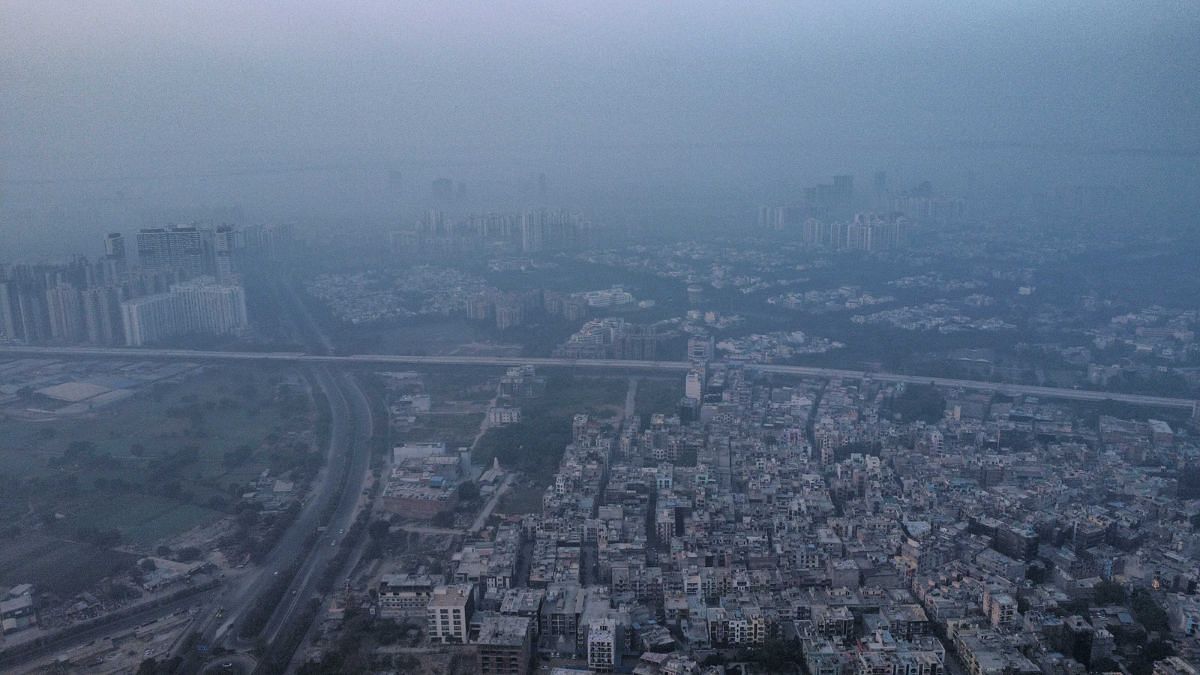
Also read: Delhi air pollution: The A to Z of Delhi’s AQI
RWA turned activists
“As citizens we went into activist roles. There are many people doing little things. We’re a small section, and the authorities think, ‘let them blabber’,” an RWA member.
Rajiv Kakria from Greater Kailash worked in advertising for 35 years before entering the RWA fold.
“I was a creative director with good communication skills. I had good headlines,” he said. “I could package activism well.” When Greater Kailash advocated for playgrounds they had a ready line for the authorities: ‘Not everyone who plays in a park wins an Olympic medal, but everyone who wins an Olympic medal has played in a park.’
But being an RWA member wasn’t enough. In 2012, he started Save Our City, an NGO that has taken up issues ranging from electricity tariffs to vehicular pollution on behalf of citizens.
“As citizens we went into activist roles. There are many people doing little things. We’re a small section, and the authorities think, ‘let them blabber’,” he said. “But through Save Our City, I wanted to bring all of us under one roof.”
He’s still fighting people on the issue of firecrackers.
“Diwali is supposed to be the festival of lights, not the festival of bombs,” Kakria said. “And it’s not the poor. According to data that we collected, maximum crackers have been burst in these big high-rise societies.”
Their might on Whatsapp groups is also tested, because, Kakria explained, the messaging is now conflicting and the burning of crackers is being promoted.
“Children are missing out on festivities,” one South Delhi resident complained on a group chat. “Why is it that pets are only scared on this one day?” said another. “Where are the tears for the killing of goats on Bakri Id?”
His brother-in-issues, Vohra, is grateful for the internet, courtesy of which he can wrap up his day job in two-three hours—and then spend the rest of his day fighting for his city. He’s passionate. Most nights, he is awake till the early hours of the morning, glued to his computer, scouring the internet for more information, more data on what’s choking his home.
His wife has a grouse. “If no one listens, then what’s the point?” she asked.
Public outreach is essential to Vohra. He’s been a blogger, calls himself an “SEO expert”, a Youtuber, and a keen proponent of Facebook live chats. And the subject line of all his interventions is the same—whether it’s waterlogging in the monsoon, or the rancid air of fall—it’s always about Delhi.
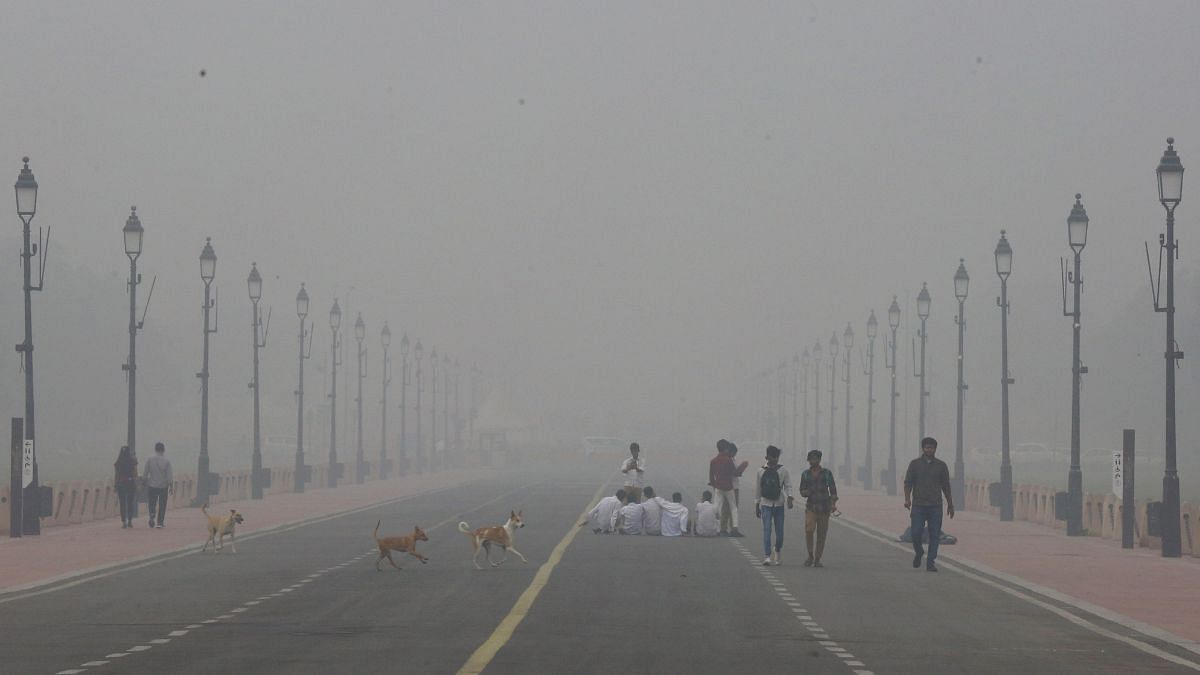
“When I first joined the RWA, it simply felt nice to do something for people,” he said. “Soon I started thinking we should move beyond the RWA. It’s my time and my money, and I’m using it all for the public. This is what makes me happy.”
Vohra was an RTI-activist before the term was fashionable. He made his first pollution-related splash nearly 10 years ago, when he worked with the pharmaceutical company Cipla. He filed an RTI on the health ramifications of pollution. According to him, leading dailies published the findings of the RTI, which laid bare the threat of lung disease.
Vohra claims to have filed over a hundred RTIs. “That’s just how I work. You don’t get anything by filing one.”
With Delhi’s AQI crossing 400 and the pollution showing no signs waning, it’s become an annual rigamarole.
“I have faith. At some point they’ll respond,” said Vohra. “What’s the point of holding blood donation drives? I want to solve real issues.”
(Edited by Ratan Priya)



